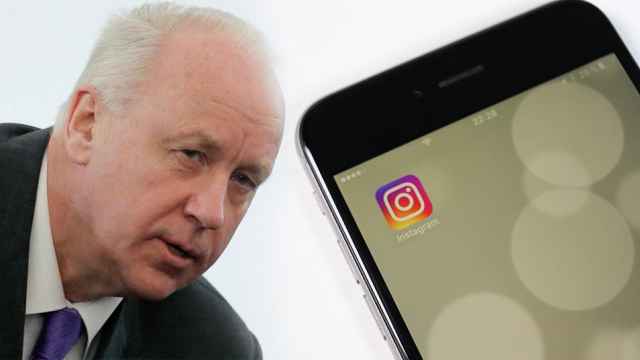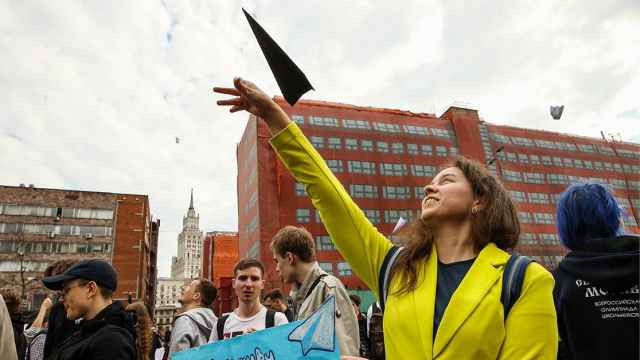The private messaging app Telegram has for the first time overtaken WhatsApp in traffic volume in Russia, the Vedomosti business daily reported Monday, with experts predicting the Russian-founded messenger will also surpass the user count of its Meta-owned competitor this year.
Telegram accounted for 60-80% of total traffic exchanged in Russia by the start of 2023 and has continued to grow since then, according to an analysis by Russia’s top four telecom operators cited by Vedomosti.
WhatsApp’s traffic in Russia reportedly remained unchanged over the same period.
“Traffic volume reflects not only the popularity of the service, but also how much heavy content — primarily video — users transfer through it,” Vedomosti quoted an unnamed representative of the Beeline provider as saying.
Telegram was founded by Russian-born tech billionaire Pavel Durov, who left Russia in 2014 following disputes with the government over user privacy and losing his brainchild, the popular social network VKontakte, to Kremlin allies.
In addition to its messaging service, Telegram serves as a critical platform for broadcasting uncensored information and is used by many independent Russian journalists as well as officials.
A Russian court banned WhatsApp parent company Meta, which also owns Facebook and Instagram, as an "extremist" organization shortly after Moscow's troops invaded Ukraine in early 2022, but said the ruling would not affect WhatsApp.
Vedomosti reported that WhatsApp still boasts the highest number of Russian users. But experts anticipate Telegram — with user numbers in Russia growing five times faster than WhatsApp — to take its spot as soon as this year.
“Telegram is in second place after WhatsApp in terms of the number of users, but Telegram is the fastest-growing messenger,” a representative of the Tele2 provider was quoted as saying.
Telegram’s daily user count totaled 48.8 million people, or around 40% of Russia’s internet users, in January 2023, compared to WhatsApp's 76 million daily users.
“Telegram today is much more than a messenger, it’s a full-fledged media [platform] with a large number of channels,” Maria Saykina, an analyst with the Russian Association for Electronic Communications (RAEC), told Vedomosti.
A Message from The Moscow Times:
Dear readers,
We are facing unprecedented challenges. Russia's Prosecutor General's Office has designated The Moscow Times as an "undesirable" organization, criminalizing our work and putting our staff at risk of prosecution. This follows our earlier unjust labeling as a "foreign agent."
These actions are direct attempts to silence independent journalism in Russia. The authorities claim our work "discredits the decisions of the Russian leadership." We see things differently: we strive to provide accurate, unbiased reporting on Russia.
We, the journalists of The Moscow Times, refuse to be silenced. But to continue our work, we need your help.
Your support, no matter how small, makes a world of difference. If you can, please support us monthly starting from just $2. It's quick to set up, and every contribution makes a significant impact.
By supporting The Moscow Times, you're defending open, independent journalism in the face of repression. Thank you for standing with us.
Remind me later.






